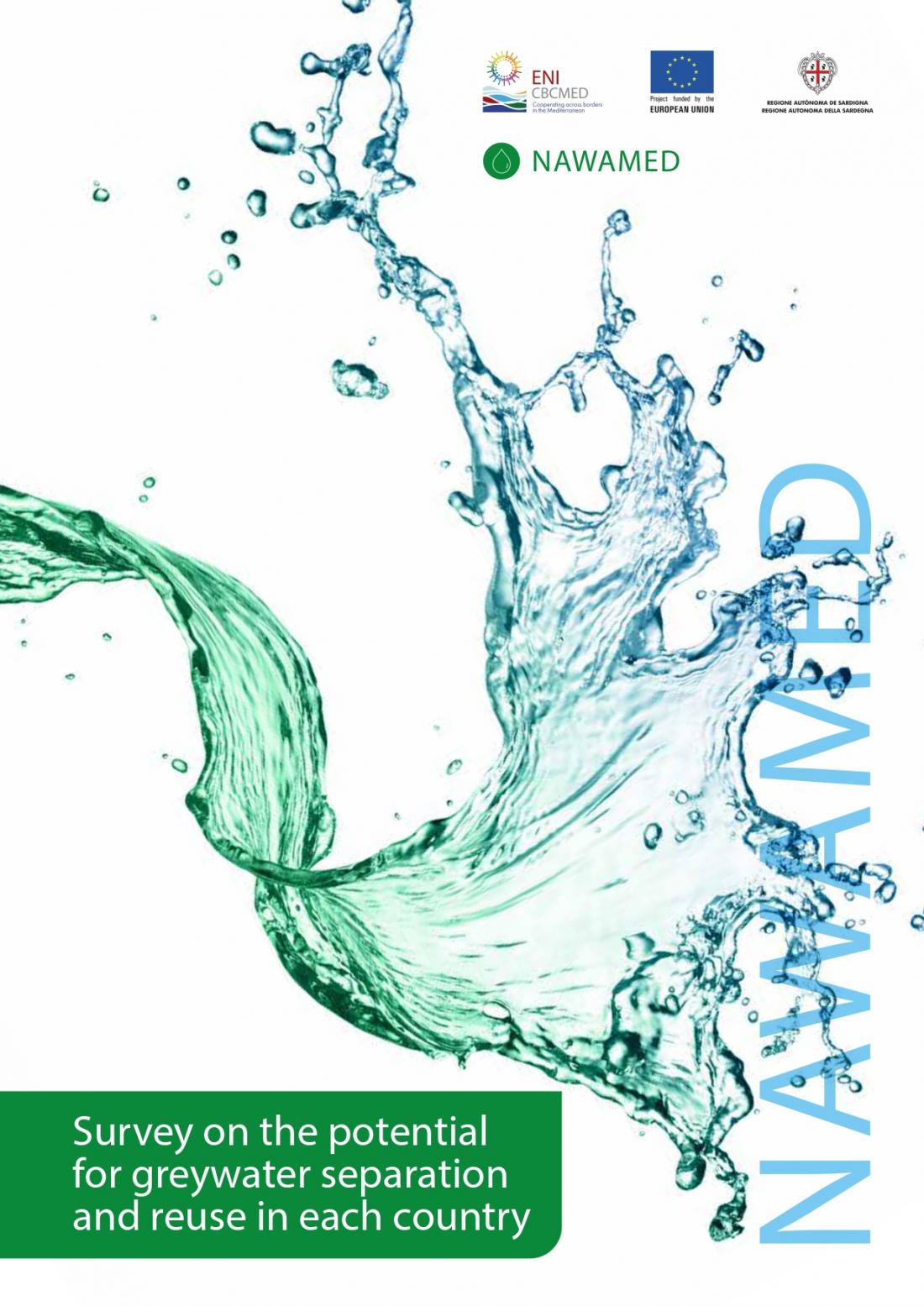NAWAMED highlights potential of greywater separation and reuse in Italy, Jordan, Lebanon and Tunisia

In the whole Mediterranean area, there is a need for new solutions to provide water and sanitation services reducing water use and wastewater discharge.
The most promising approach to domestic water reuse considers decentralised solutions to collect, treat and reuse water without expensive infrastructures. However, the challenge for our cities is to integrate the solutions in the urban context and use low land area, as availability is limited. For that, Nature-Based solutions, such as green walls and roof wetlands, can play a successful role.
The NAWAMED team gathered information to assess the potential for greywater reuse in the countries hosting the pilots (Italy, Jordan, Lebanon, and Tunisia). The report “Survey on the potential for greywater separation and reuse in each country”, aims to estimate the water that could be recovered, analysing the main obstacles for a large-scale greywater reuse strategy, such as technical, economic, legal, and cultural.
The report has three main sections with insights for each country.
Section 1 reports on water and wastewater data, i.e., availability of natural water resources, rain and annual rain pattern, water used for urban/domestic purposes, the population covered by a sewer system, etc..
Section 2 describes the 2-3 most relevant settlement typologies of each country (including refugee camps), stressing the differences of urban/domestic water management and sanitation facilities.
Section 3 provides basic information about the legal and administrative frameworks and focuses on the feasibility of greywater reuse in terms of permits issuing system, social or cultural barriers, water pricing systems, availability of national/regional funding schemes for water reuse.
According to the report, the difficulties in retrofitting greywater recovery solutions in existing buildings, the low cost of potable water - which makes the payback time of water reuse systems quite long - and the lack of specific regulation for greywater reuse are the main obstacles to its diffusion. Nevertheless, greywater reuse is seen as a positive practice in all the NAWAMED countries. Still, the water recovery potential is significantly different from one country to another.
As NAWAMED aims at boosting greywater separation and reuse in the partners’ countries, the report captures the current situation. The project team will use this information and the experience and knowledge gained in the construction and monitoring of the pilots for involving and training the local stakeholders to scale up and mainstream the nature-based solutions.









